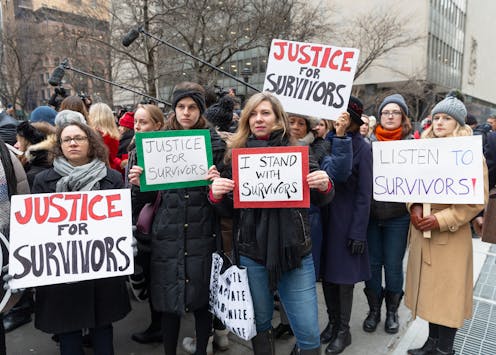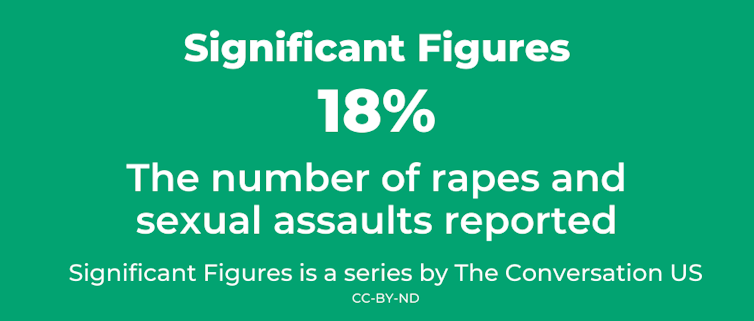Less than one-fifth of survivors report rape and sexual assault
Harvey Weinstein's conviction isn't the norm for perpetrators of sexual violence.


As experts in criminology and the justice system, we were surprised to learn that a jury voted to convict Harvey Weinstein on two counts of rape and sexual assault.
This surprise was based on our more than a decade of research on the attrition of sexual assault cases from the criminal justice system.
We know that most victims of sexual assault never report their attack to the police. For those that do report, the probability of arrest and prosecution of their assailant is small.
In fact, the overwhelming majority of cases reported to the police do not end in conviction, as evidenced by our recent research on sexual assaults reported to the police in six jurisdictions across the United States.
We found that many cases drop out at the investigation stage, with only 18.8% of rapes reported to the police resulting in an arrest. Slightly more than a third of the arrests of adults ended in a conviction. That’s just 6.5% of investigations.
What we can learn from the Weinstein verdict, and from the #MeToo movement more generally, is that perhaps the time has come to bolster the criminal justice response to sexual assault in ways that give sexual assault victims the procedural justice they deserve.
[You’re smart and curious about the world. So are The Conversation’s authors and editors. You can get our highlights each weekend.]
This project was supported by Award No. 2012-IJ-CX-0052 awarded by the National Institute of Justice, Office of Justice Programs, U.S. Department of Justice to the University of Massachusetts Lowell. The opinions, findings, and conclusions or recommendations expressed in this publication are those of the authors and do not necessarily reflect those of the Department of Justice.
April Pattavina receives funding from The National Institute of Justice and The National Science Foundation.
Read These Next
Trump says climate change doesn’t endanger public health – evidence shows it does, from extreme heat
Climate change is making people sicker and more vulnerable to disease. Erasing the federal endangerment…
Nearly every state in the US has dyslexia laws – but our research shows limited change for strugglin
Dyslexia laws are now nearly universal across the US. But the data shows that passing a law is not the…
Exiled Iranians and Venezuelans may well support regime change – but diasporas don’t always reflect
Diasporas are often treated by media and policymakers as monolithic blocs, but the reality is more complicated.





